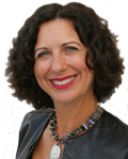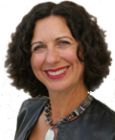
Autism
Judge to Hear Request to Ban Film About Autism
French Psychoanalysts try to ban film about Autism "The Wall" :
Posted December 7, 2011
On Thursday, December 8, a French judge in the Lille Regional Court in France will be hearing arguments from attorneys in regards to the documentary film by Sophie Robert, The Wall: Psychoanalysis Put to the Test for Autism. The psychoanalysts are seeking to have the film banned. The Wall highlights the treatment -- psychoanalysis -- that families are offered in France when seeking help for their child with autism.
Things are heating up as the hour of justice approaches. There is a petition making the rounds by an autism advocacy group collecting signatures for a statement to be given to the French Minister of Health. Bernadette Rogé, a well-known and well-respected autism expert in France who is a University Professor and a psychologist specializing in Autism, issued a statement about The Wall saying that "The information provided by the psychoanalysts are totally erroneous from a scientific viewpoint and take an ideological stand that are in opposition of the interests of individuals impacted with autism and their families."
As I explained in a recent Huffington Post blog, The documentary consists of interviews of 30 French psychoanalysts (many of them lead psychiatrists at treatment centers and department heads of notable French hospitals) who place the blame for autism on mothers who are either too cold or too incestuous towards their children. The psychoanalysts in the film quote Bruno Bettelheim (a proponent of the "refrigerator mother" theory of autism), Sigmund Freud (father of the Oedipus complex and penis envy), and Jacques Lacan when discussing the causes and treatment of autism. In the 1960s, Lacan described psychotic and autistic children as victims of the alienation of a psychogenic mother who is unable to separate from a child who is a substitute for the penis she was born without.
The 50-minute film has been available online for about two months and can be seen in the original French version, with English subtitles, or with Spanish subtitles. In the film Sophie Robert asks the psychoanalysts questions about the causes and treatments of autism. If you watch the film, be prepared to hear statements about autism that autism professionals working in the US thought were put to rest decades ago. For example: In the first interview shown, a psychoanalyst explains that when treating a child with autism, toy crocodiles with their large mouth full of sharp teeth represent mothers wanting to eat their young, and that a phallus symbol representing the father (in this case a pen) needs to block the mother's mouth to keep her from devouring her child.
Want to hear more? Watch the film!
It's important to understand the stronghold and political power that psychoanalysts have in France when it comes to treating autism. Despite the lack of any research showing progress in their expensive psychiatric day programs paid for by government medical funds. These ineffective treatments include "Le Packing" -- derived from a 17th century treatment for mentally-ill patients in insane asylums -- where autistic children and teens are wrapped in cold, wet towels. French non-profit autism organizations such as Autistes sans Frontieres and Vaincre l'Autism among others have been battling for years to have their children educated at schools with evidence-based strategies provided by trained teachers and paraprofessionals, rather than to have to enroll their children in psychiatric day programs run by the medical system.
A study carried out by the INSERM (The French National Institute of Health and Research) concluded that psychoanalysis therapy is far less effective than other psychotherapies including cognitive behavior therapy. However, the Minister of Health at the time, Minster Douste-Blazythe, had the results of the study removed from the official Ministry of Health website after psychoanalysts complained to him.
The French Comité Consultatif National d'Ethique (CCNE), a French advisory council on bioethics issues, reported that families encountered huge problems in accessing appropriate early and educational programs and were given little choice in treatment. The Council of Europe condemned France in 2004 for not meeting its obligations to provide children with autism an appropriate education.
Personally, I have a hard time staying objective while watching this film. My first experience with autism was at a California State Hospital where we used applied behavior analysis to teach young adults with devlopmental disabilities - including autism- self-help skills. Then, my autistic son Jeremy (now 22) was born in France. When I sought help for him, I was told that in order for him to continue to receive services such as speech and langauge therapy, and psychomotricity (both of which helped him), then he had see a psychoanalyst. We stopped treatment after three sessions. During the third session (luckily my husband was there as a witmess) she began to question me about how Jeremy had reacted when I stopped breastfeeding because Jeremy was stimming with a salt and paper shaker set (two round objects). When one of the objects fell to the floor she cried "He has lost his mother's breast!" and when he went looking for the object she exclaimed "he is searching for his mother's breast!" That was enough for my family and that was the day we decided that we had to leave France to get any educational and useful help for our son. It was also the day I decided to do what I could to help inform families, thus my books (which, of course, have not been published in France).
Let's hope that the judge does not ban the film so people can see it and make thier own conclusions.

